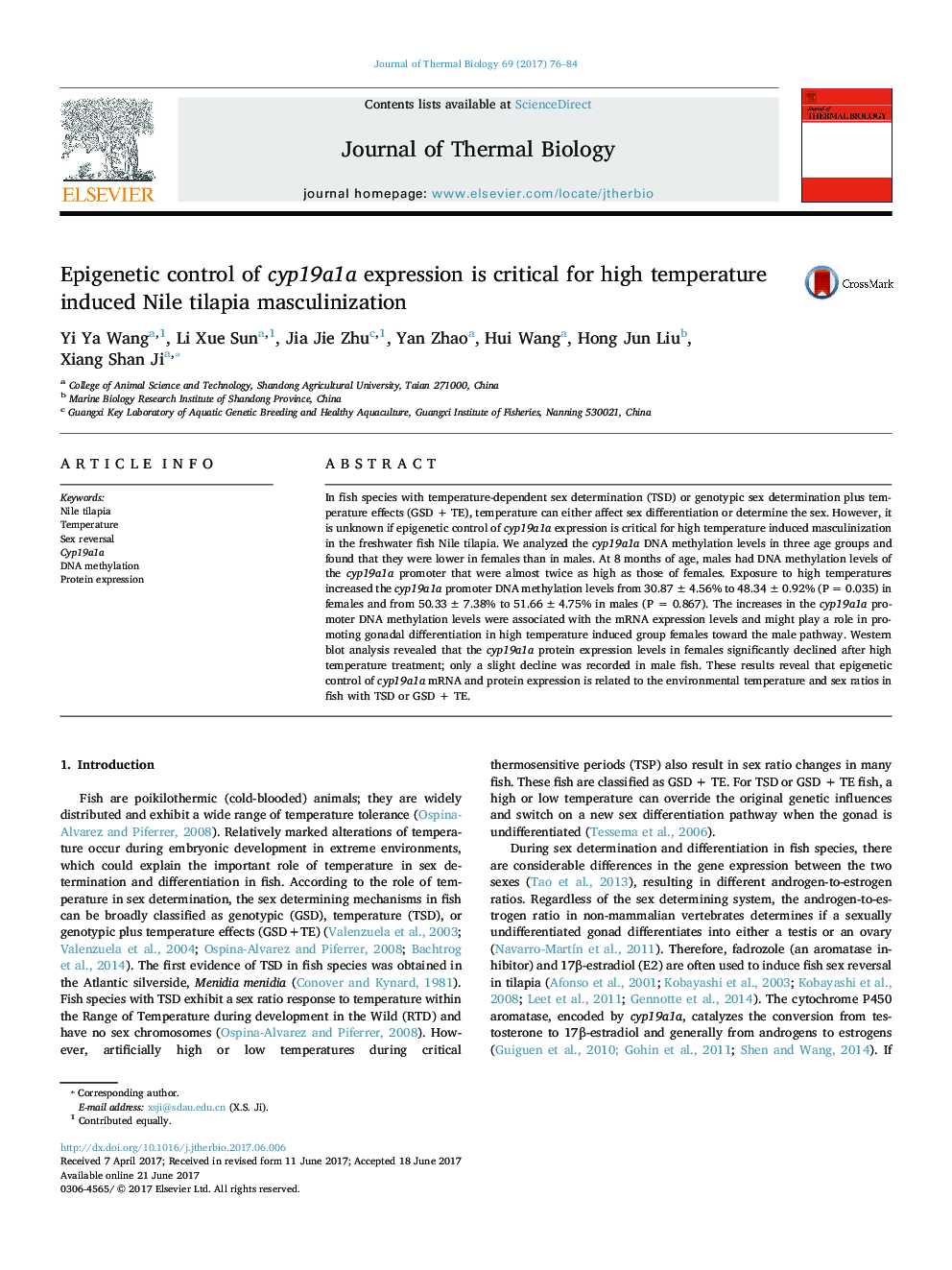| Article ID | Journal | Published Year | Pages | File Type |
|---|---|---|---|---|
| 5593341 | Journal of Thermal Biology | 2017 | 9 Pages |
â¢High temperatures increased cyp19a1a promoter DNA methylation level.â¢High temperatures decreased cyp19a1a mRNA expression level in both sexes and protein expression levels in females.â¢High temperatures are able to masculinize populations by increasing cyp19a1a promoter DNA methylation levels and decreasing cyp19a1a mRNA expression.
In fish species with temperature-dependent sex determination (TSD) or genotypic sex determination plus temperature effects (GSD + TE), temperature can either affect sex differentiation or determine the sex. However, it is unknown if epigenetic control of cyp19a1a expression is critical for high temperature induced masculinization in the freshwater fish Nile tilapia. We analyzed the cyp19a1a DNA methylation levels in three age groups and found that they were lower in females than in males. At 8 months of age, males had DNA methylation levels of the cyp19a1a promoter that were almost twice as high as those of females. Exposure to high temperatures increased the cyp19a1a promoter DNA methylation levels from 30.87 ± 4.56% to 48.34 ± 0.92% (P = 0.035) in females and from 50.33 ± 7.38% to 51.66 ± 4.75% in males (P = 0.867). The increases in the cyp19a1a promoter DNA methylation levels were associated with the mRNA expression levels and might play a role in promoting gonadal differentiation in high temperature induced group females toward the male pathway. Western blot analysis revealed that the cyp19a1a protein expression levels in females significantly declined after high temperature treatment; only a slight decline was recorded in male fish. These results reveal that epigenetic control of cyp19a1a mRNA and protein expression is related to the environmental temperature and sex ratios in fish with TSD or GSD + TE.
